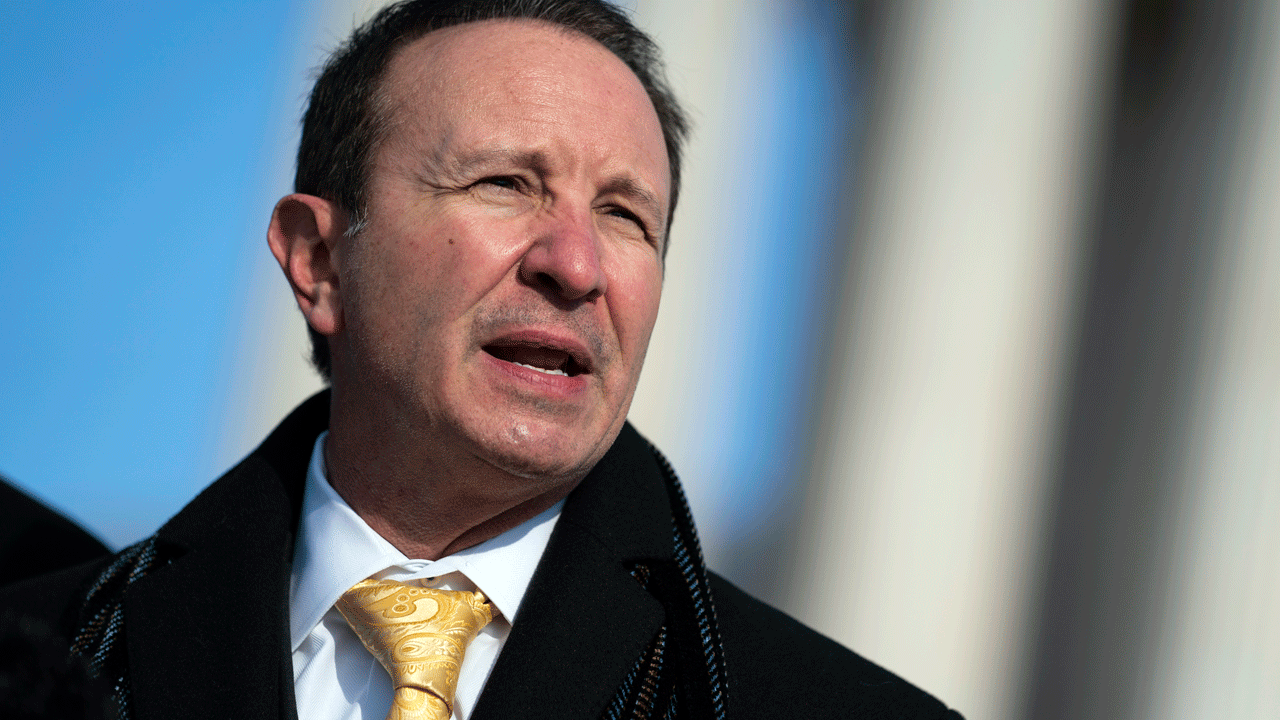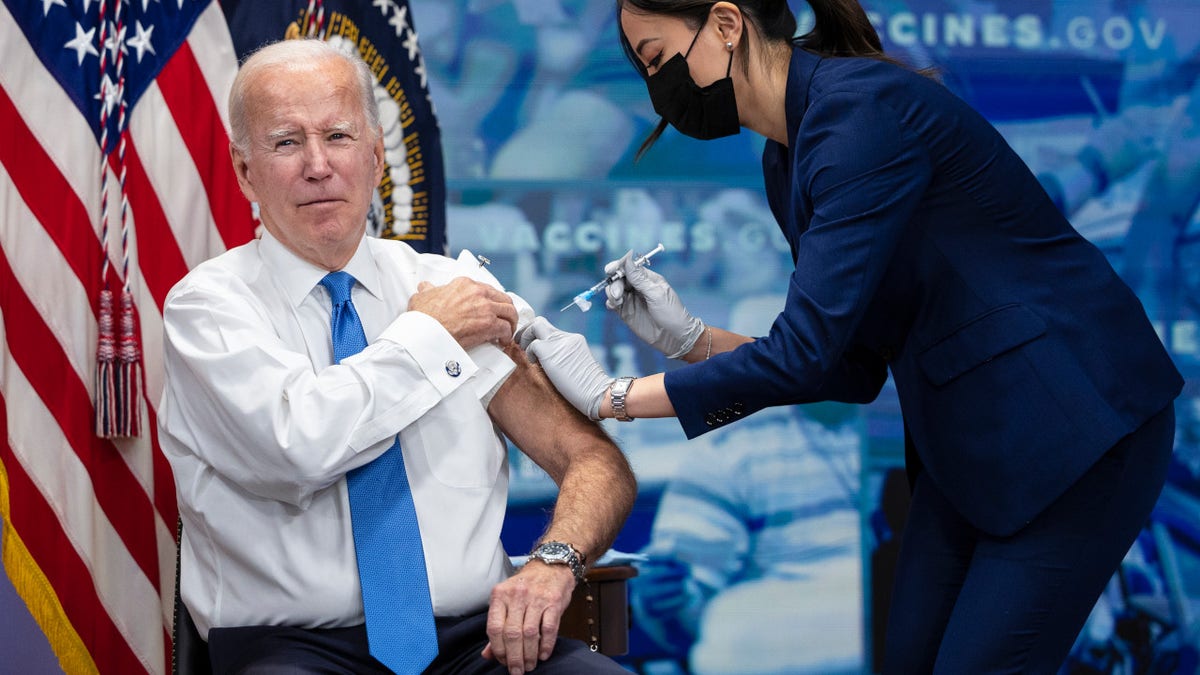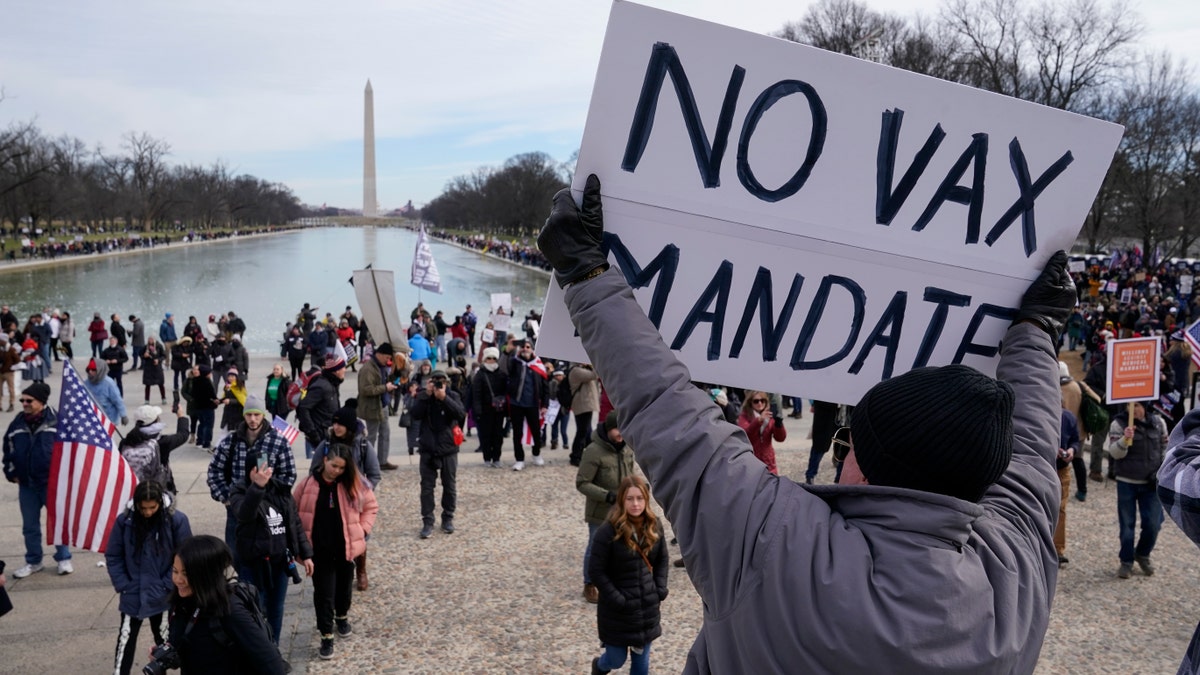Unvaccinated military members could take vaccine mandate debate to courts
Legal panelists weigh in on the debate over the military's vaccine mandate on 'Fox News @ Night.'
A federal appeals court has ruled the Biden administration cannot enforce its COVID-19 vaccine mandate on contractors with the government in three states.
A three-judge panel on the 5th Circuit Court of Appeals voted 2-1 on Monday to uphold a lower court decision that blocked President Biden's September 2021 vaccine mandate for federal contractors. Louisiana, Indiana and Mississippi brought a lawsuit against the government alleging the president overreached his authority by issuing the mandate.
Estimates from the Department of Labor suggest that one in five U.S. workers is employed by a federal contractor. Citing the U.S. Supreme Court's COVID-19 vaccine mandate decisions, the appeals court panel ruled that Biden's attempt to "regulate ‘a significant portion of the American economy’" via executive order was unlawful.
"The President asks this Court to ratify an exercise of proprietary authority that would permit him to unilaterally impose a healthcare decision on one-fifth of all employees in the United States," the court said. "We decline to do so."
NEW JERSEY SCHOOL DISTRICT BLASTED FOR REINSTATING MASK MANDATE FOR STAFF, STUDENTS: 'PLAIN CRUEL'

Louisiana is one of seven states that have filed lawsuits challenging the Biden administration's COVID-19 vaccine mandate for federal contractors. Louisiana Attorney General Jeff Landry celebrated the court's decision as a "victory for freedom." (AP Photo/Evan Vucci, File)
Louisiana Attorney General Jeff Landry celebrated the decision as a "victory for freedom."
"We will continue to stand up against the Biden Administration's abuses of power that threaten us now and in the future," Landry said in a statement.
The government had argued that the president had broad statutory authority to issue policies that "provide the Federal Government with an economical and efficient system" of contractor operations under the Procurement Act. The suing states said this interpretation of the law had no limiting principle. Biden's administration countered that "presidential authority under the Procurement Act is constrained by the statute's text, which requires that any executive order bear a close nexus to the statutory goals of establishing ‘an economical and efficient system’ for federal procurement and contracting."
The court agreed with the states that the government's "closed nexus" test unlawfully gives the president "nearly unlimited authority" to impose requirements on federal contractors.
ERIC ADAMS URGES NEW YORKERS TO PUT THEIR MASKS BACK ON

President Biden receives a COVID-19 Vaccine booster shot inside the South Court Auditorium at the White House in Washington, D.C., on Oct. 25, 2022. (Tom Brenner for The Washington Post via Getty Images)
"Hypothetically, the President could mandate that all employees of federal contractors reduce their BMI below a certain number on the theory that obesity is a primary contributor to unhealthiness and absenteeism," the majority opinion by Judge Kurt Engelhardt said. "Under the Government’s theory of the case, the only practical limit on presidential authority in this sphere is the executive’s ability to tie policy priorities to a notion of economy or efficiency."
The majority further said that under the government's argument, any president "would have little difficulty" issuing requirements on federal contractors "that their employees take daily vitamins, live in smoke-free homes, exercise three times a week, or even, at the extremity, take birth control in order to reduce absenteeism relating to childbirth and care."
"To allow this mandate to remain in place would be to ratify an 'enormous and transformative expansion in' the President’s power under the Procurement Act," the 5th Circuit panel said. "Under Supreme Court precedent, this Court cannot permit such a mandate to remain in place absent a clear statement by Congress that it wishes to endow the presidency with such power."
The judges also rejected the government's contention that the special circumstances of the COVID-19 pandemic endowed the president with special, unchecked powers.
"The difference here, the Government suggested, is at least in part that we are facing a 'once-in-a-century' pandemic. The Constitution is not abrogated in a pandemic," the court said. "Nor, as the Supreme Court’s COVID-related decisions make clear, are our legal principles of statutory interpretation… And nor, for that matter, is Congress, who could have drafted vaccination-related laws or even made clear its intent regarding the President’s proprietary authority in federal contracting or employing."
The White House did not immediately respond to a request for comment.
CDC SAYS RESPIRATORY VIRUSES MAY CONTINUE TO SPREAD FOR WEEKS, 'POSSIBLY EVEN MONTHS': REPORT

Protesters gather for a rally against COVID-19 vaccine mandates in Washington, D.C., on Jan. 23, 2022. (AP Photo/Patrick Semansky, File)
In a dissenting opinion, Justice James Graves said the vaccine mandate was "in the mainstream" of what American businesses were doing in response to the pandemic. He noted that U.S. companies including AT&T, Bank of America, Google, Johnson & Johnson and Microsoft independently implemented a vaccine requirement for their employees.
"There is no compelling reason why federal government contractors should be treated differently than private businesses in this situation," Graves argued.
CLICK HERE TO GET THE FOX NEWS APP
A nationwide injunction that resulted from a separate lawsuit had prevented the government from enforcing the COVID-19 vaccine mandate on federal contractors. In August, a federal appeals court overturned that injunction, ruling that the government should only be blocked from enforcing the mandate in the seven states that have sued and to members of the Associated Builders and Contractors.
The White House instructed federal agencies not to enforce the vaccine mandate in October.






